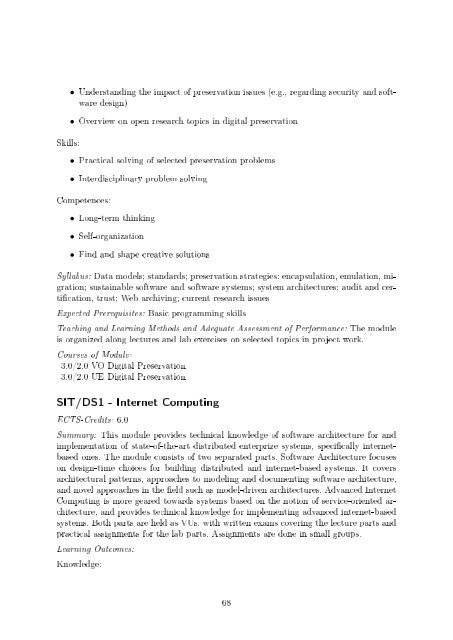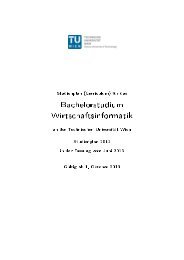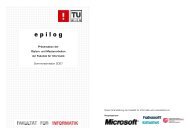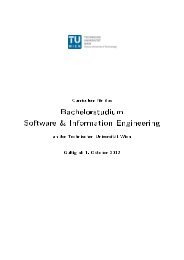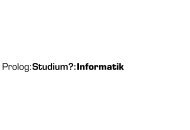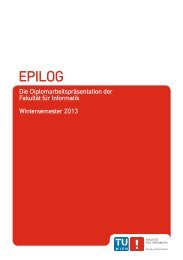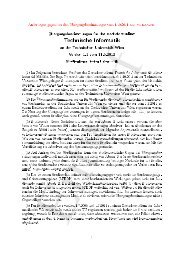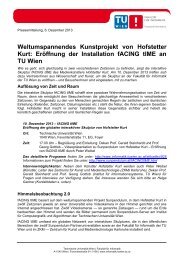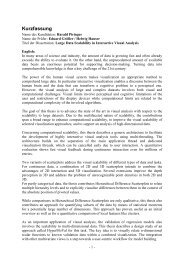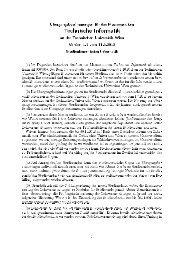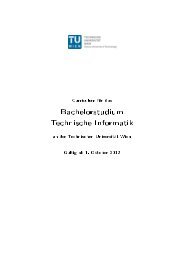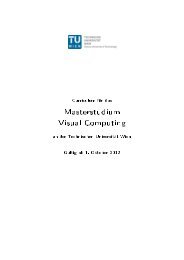Masterstudium Business Informatics - Fakultät für Informatik, TU Wien
Masterstudium Business Informatics - Fakultät für Informatik, TU Wien
Masterstudium Business Informatics - Fakultät für Informatik, TU Wien
Create successful ePaper yourself
Turn your PDF publications into a flip-book with our unique Google optimized e-Paper software.
Skills:<br />
• Understanding the impact of preservation issues (e.g., regarding security and software<br />
design)<br />
• Overview on open research topics in digital preservation<br />
• Practical solving of selected preservation problems<br />
• Interdisciplinary problem solving<br />
Competences:<br />
• Long-term thinking<br />
• Self-organization<br />
• Find and shape creative solutions<br />
Syllabus: Data models; standards; preservation strategies: encapsulation, emulation, migration;<br />
sustainable software and software systems; system architectures; audit and certication,<br />
trust; Web archiving; current research issues<br />
Expected Prerequisites: Basic programming skills<br />
Teaching and Learning Methods and Adequate Assessment of Performance: The module<br />
is organized along lectures and lab exercises on selected topics in project work.<br />
Courses of Module:<br />
3.0/2.0 VO Digital Preservation<br />
3.0/2.0 UE Digital Preservation<br />
SIT/DS1 - Internet Computing<br />
ECTS-Credits: 6.0<br />
Summary: This module provides technical knowledge of software architecture for and<br />
implementation of state-of-the-art distributed enterprize systems, specically internetbased<br />
ones. The module consists of two separated parts. Software Architecture focuses<br />
on design-time choices for building distributed and internet-based systems. It covers<br />
architectural patterns, approaches to modeling and documenting software architecture,<br />
and novel approaches in the eld such as model-driven architectures. Advanced Internet<br />
Computing is more geared towards systems based on the notion of service-oriented architecture,<br />
and provides technical knowledge for implementing advanced internet-based<br />
systems. Both parts are held as VUs, with written exams covering the lecture parts and<br />
practical assignments for the lab parts. Assignments are done in small groups.<br />
Learning Outcomes:<br />
Knowledge:<br />
68


